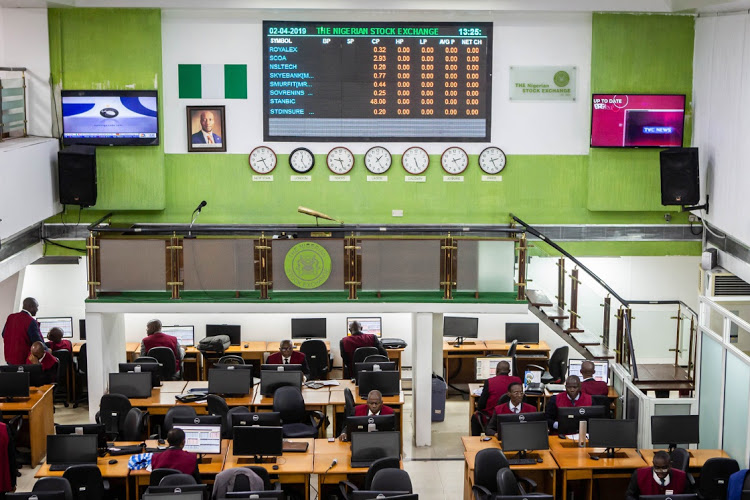Following the positive performance at the Nigerian Stock Exchange (NSE), market analysts have urged local investors to sustain the level of participation.
This is coming after proceedings on the nation’s bourse ended the month of November 2019 on the positive trajectory with a gain of N202 billion to close at N13.032 trillion.
Checks by Daily Sun showed that transactions on NSE opened the trading month of November at N12.830 trillion in market capitalisation and 26,355.35 points in All Share Index and settled the last trading day of November at N13.032 trillion and 27,002.15 index points, thus resulting into a gain of N202 billion or 2.45 per cent.
The gain recorded was due to positive sentiment by investors following the recent restrictions on Open Market Operations (OMO) by the Central Bank of Nigeria (CBN).
The CBN had issued a circular barring individuals and local corporate firms from investing in OMO auctions. The exclusion implies that only Deposit Money Banks (DMBs) and Foreign Portfolio Investors (FPIs) can participate in OMOs, while everyone else, including non-bank financial institutions, will have to shift focus to treasury bills and other investment options.
According to analysts, the policy is largely in line with its drive to divert liquidity away from risk-free instruments to the real sector after the apex bank had earlier instructed banks to prevent customers with outstanding loans and recipients of intervention funds from investing in T-Bills or OMOs.
This means that, with the restriction, retail and institutional actors have to seek alternative destinations for their funds, creating extra liquidity in other assets. The restriction of key corporates such as Pension Funds Administrators (PFAs) and insurance companies from participating in OMO is expected to free up excess investable cash for allocation to assets beyond fixed income alternatives.
Hence, market analysts who spoke to Daily Sun believed that this would increase investors’ appetite for stocks, especially the fundamentally strong equities and restore confidence in the market. They, however, urged local participation to sustain the tempo while adding that it is high time domestic investors drove the Nigerian market.
Managing Director, RMB Nigeria Stockbrokers Limited, Abiola Adekoya, while applauding the decision of the CBN, noted that there has been increased participation from domestic investors in the month of November following the CBN’s decision .
Read Also: FG Has Capacity To Stop Pollution In Rivers –Cleric
“It has impacted positively on equities as we saw strong investors sentiment towards stocks and this is down to what the CBN did. When the rates were high, we saw investors moving towards that space but following the apex bank’s decision, there has been increased participation on the part of local investors and the market has recovered tremendously well.
This is a good one for the market because we cannot always depend on the international investors to always drive our market. We can only hope this would be sustained and participation on the part of the local participation can be sustained, Adekoya said.
Corroborating her, the Chief Executive Officer, EFG Hermes Nigeria Limited, Lillian Olubi, said she had predicted that the equities market would see an increased investment and appetite from investors following the CBN’s directive.
Olubi said the CBN directive had a positive impact on the equities market, in which case such corporate organisations like pension managers would need to divert more funds into equities market investments and added that more bite especially on the part of local participation is needed into the equities market.
For their part, Analysts at Cordros Capital said: “In our view, the performance is a reaction to a limited outlet for investments given recent policy directives limiting domestic participation in the market. We expect that the market might continue to benefit over the short-term, especially in the face of lower yields in the fixed income market.”
THISDAY










